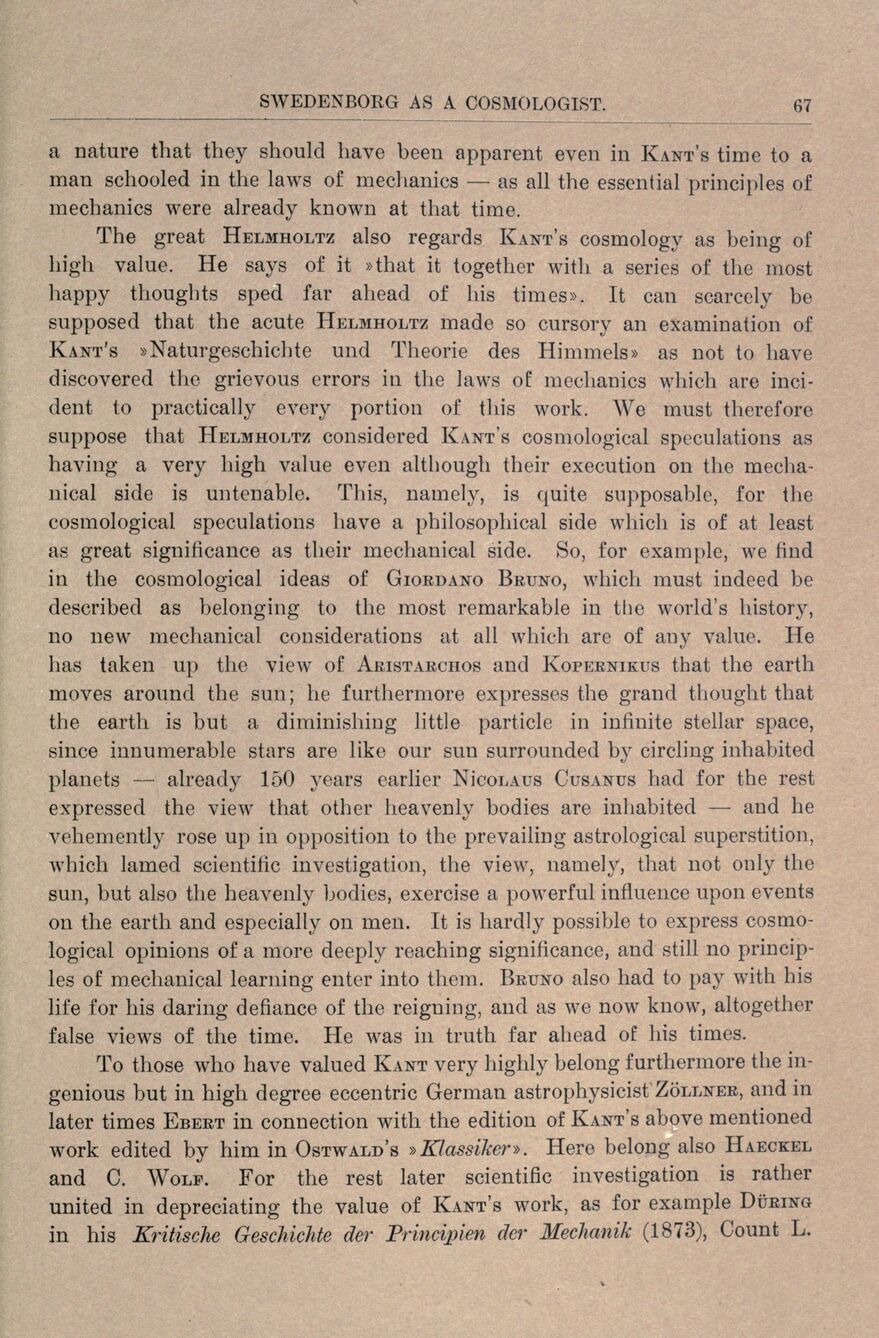
Full resolution (JPEG) - On this page / på denna sida - Sidor ...

<< prev. page << föreg. sida << >> nästa sida >> next page >>
Below is the raw OCR text
from the above scanned image.
Do you see an error? Proofread the page now!
Här nedan syns maskintolkade texten från faksimilbilden ovan.
Ser du något fel? Korrekturläs sidan nu!
This page has never been proofread. / Denna sida har aldrig korrekturlästs.
a nature that they should liave been apparent even in Kants time to a
man schooled in the laws of mechanics — as all the essential principles of
mechanics were already known at that time.
The great Helmholtz also regards Kants cosmology as being of
high value. He says of it »that it together with a series of the most
happy thoughts sped far aliead of his times». It can scarcely be
supposed that the acute Helmholtz made so cursory an examination of
Kant’s »Naturgeschichte und Theorie des Himmels» as not to liave
discovered the grievous crrors in the laws of mechanics which are
incident to practically every portion of this work. We must therefore
suppose that Helmholtz considered Kant’s cosmological speculations as
having a very high value even although their execution on the
mecha-nical side is untenable. This, namely, is quite supposablc, for the
cosmological speculations have a philosophical side which is of at least
as great signiticance as their meclianical side. So, for example, we find
in the cosmological ideas of Giordano Bruno, which must indeed be
described as belonging to the most remarkable in the world’s history,
no new meclianical considerations at all which are of any value. He
has taken up the view of Aristarciios and Kopernikus that the earth
moves around the sun; he furthermore expresses the grand thought that
the earth is but a diminishing little particle in infinite stellar space,
since innumerable stars are like our sun surrounded by circling inhabited
planets — already 150 years earlier NicoLAus Cusanus had for the rest
expressed the view that other heavenly bodies are inhabited — and he
vehemently rose up in opposition to the prevailing astrological superstition,
which lamed scientitic investigation, the view, namely, that not only the
sun, but also the heavenly bodies, exercise a powerful influence upon events
on the earth and especially on men. It is hardly possible to express
cosmological opinions of a more deeply reaching signiticance, and still no
principles of meclianical learning enter into tliem. Bruno also had to pay with his
life for his daring defiance of the reigning, and as we now know, altogether
false views of the time. He was in truth far aliead of his times.
To those who have valued Kant very highly belong furthermore the
in-genious but in high degree eccentric German astrophysicist Zöllner, and in
later times Ebert in connection with the edition of Kant’s above mentioned
work edited by him in Ostwald’s »Klassiker». Here belong also Haeckel
and C. Wolf. For the rest later scientitic investigation is rather
united in depreciating the value of Kant’s work, as for example During
in his Kritische Geschichte der Principien der Meclianik (1873), Count L.
<< prev. page << föreg. sida << >> nästa sida >> next page >>